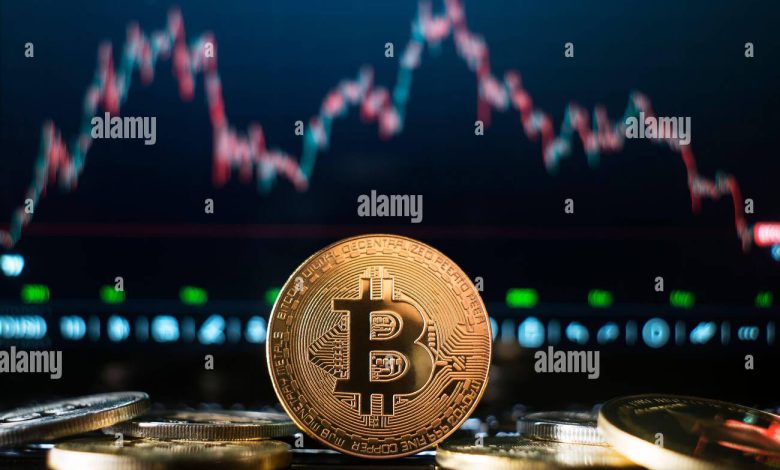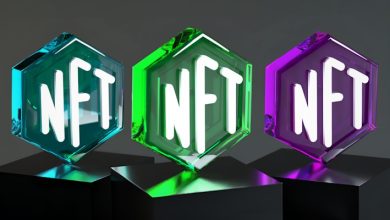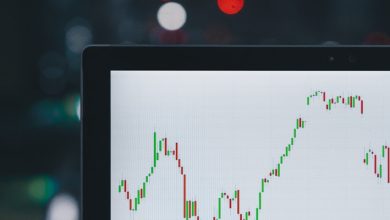The Rise of Altcoins: Trends and Analysis

- Understanding the Altcoin Market
- Exploring the Growth of Alternative Cryptocurrencies
- Key Trends in the Altcoin Industry
- Analyzing the Popularity of Altcoins
- The Future of Altcoins: Predictions and Insights
- Comparing Altcoins to Traditional Cryptocurrencies
Understanding the Altcoin Market
The altcoin market is a dynamic and rapidly evolving sector within the cryptocurrency industry. Altcoins, or alternative cryptocurrencies, are digital assets that serve as alternatives to Bitcoin. Understanding the altcoin market is crucial for investors looking to diversify their portfolios and capitalize on emerging trends.
One key aspect of the altcoin market is its volatility. Altcoins can experience significant price fluctuations in a short period, making them both high-risk and high-reward investments. It is essential for investors to conduct thorough research and due diligence before entering the altcoin market to mitigate potential risks.
Another important factor to consider in the altcoin market is market capitalization. Market capitalization refers to the total value of a cryptocurrency in circulation and is calculated by multiplying the current price by the total supply. Investors often look at market capitalization to gauge the size and potential growth of a particular altcoin.
Furthermore, the altcoin market is influenced by various factors, including technological developments, regulatory changes, and market sentiment. Keeping abreast of news and developments in the cryptocurrency space is essential for investors to make informed decisions and stay ahead of market trends.
In conclusion, the altcoin market offers a wealth of opportunities for investors seeking to diversify their portfolios and capitalize on the growing popularity of cryptocurrencies. By understanding the dynamics of the altcoin market, investors can navigate the complexities of this sector and make strategic investment decisions that align with their financial goals.
Exploring the Growth of Alternative Cryptocurrencies
The growth of alternative cryptocurrencies, also known as altcoins, has been a significant trend in the digital currency market. These altcoins offer investors a diverse range of options beyond the well-known Bitcoin. As more altcoins are introduced to the market, it is essential for investors to explore the various opportunities and risks associated with these alternative digital assets.
One key factor driving the growth of altcoins is the desire for diversification in investment portfolios. Investors are increasingly looking for ways to spread their risk across different assets, and altcoins provide a way to do just that. By investing in a variety of altcoins, investors can potentially reduce their exposure to the volatility of any single cryptocurrency.
Another factor contributing to the growth of altcoins is the innovation and experimentation happening within the cryptocurrency space. Many altcoins are created with unique features and use cases that differentiate them from Bitcoin and other established cryptocurrencies. These innovations can attract investors looking for new opportunities in the market.
Additionally, the rise of decentralized finance (DeFi) has fueled the growth of altcoins. Many altcoins are designed to be used within decentralized applications (dApps) that offer various financial services, such as lending, borrowing, and trading. As the DeFi ecosystem continues to expand, the demand for altcoins that power these applications is likely to increase.
Overall, the growth of alternative cryptocurrencies presents both opportunities and challenges for investors. By exploring the various altcoins available in the market and understanding their unique features and use cases, investors can make informed decisions about how to incorporate these digital assets into their investment strategies. As the cryptocurrency market continues to evolve, staying informed about the latest trends and developments in altcoins will be crucial for investors looking to navigate this rapidly changing landscape.
Key Trends in the Altcoin Industry
The altcoin industry is constantly evolving, with several key trends shaping its growth and development. Understanding these trends is crucial for investors and enthusiasts looking to capitalize on the opportunities presented by alternative cryptocurrencies.
- One major trend in the altcoin industry is the rise of decentralized finance (DeFi) projects. These projects aim to revolutionize traditional financial systems by offering decentralized alternatives to banking, lending, and trading. DeFi tokens have gained significant traction in recent years, with many investors seeing them as a lucrative investment opportunity.
- Another important trend is the increasing popularity of non-fungible tokens (NFTs). NFTs are unique digital assets that represent ownership of a particular item or piece of content. They have become a hot commodity in the art, gaming, and entertainment industries, with many altcoins now focusing on NFT integration.
- Interoperability is also a key trend in the altcoin industry, with many projects working towards creating seamless communication between different blockchains. This trend aims to address the issue of blockchain scalability and improve overall efficiency in the cryptocurrency ecosystem.
- Furthermore, environmental sustainability has become a major concern for many altcoin projects. With the growing awareness of the environmental impact of blockchain technology, many altcoins are now focusing on developing eco-friendly solutions to reduce energy consumption and carbon emissions.
Overall, these key trends in the altcoin industry reflect the dynamic and innovative nature of the cryptocurrency market. By staying informed about these trends and adapting to the changing landscape, investors can position themselves for success in the world of alternative cryptocurrencies.
Analyzing the Popularity of Altcoins
When analyzing the popularity of altcoins, it is important to consider various factors that contribute to their rise in the cryptocurrency market. Altcoins have gained traction due to their unique features and functionalities, which set them apart from traditional cryptocurrencies like Bitcoin. Investors are increasingly diversifying their portfolios by investing in altcoins, seeking higher returns and opportunities for growth.
One of the key drivers of altcoin popularity is the innovative technology behind these digital assets. Altcoins often introduce new concepts such as smart contracts, decentralized applications, and proof-of-stake mechanisms, which appeal to tech-savvy investors looking for cutting-edge solutions in the blockchain space. This technological advancement has helped altcoins gain recognition and attract a growing user base.
Another factor contributing to the popularity of altcoins is the potential for high volatility and price appreciation. While this can be a double-edged sword for investors, many see it as an opportunity to capitalize on short-term price movements and generate significant profits. Altcoins have shown the ability to deliver substantial returns in a relatively short period, making them an attractive option for traders seeking quick gains.
The Future of Altcoins: Predictions and Insights
Looking ahead, the future of alternative cryptocurrencies (altcoins) appears to be promising. As the cryptocurrency market continues to evolve and mature, altcoins are expected to play an increasingly significant role in the digital economy. Here are some predictions and insights on what the future may hold for altcoins:
- Increased adoption: Altcoins are likely to see a surge in adoption as more investors and users become familiar with the benefits they offer. With a diverse range of altcoins available, users have the opportunity to choose the ones that best align with their investment goals and values.
- Technological advancements: Altcoin developers are constantly innovating and improving their technologies to enhance security, scalability, and functionality. This ongoing development is expected to attract more users and investors to the altcoin market.
- Regulatory clarity: As regulators around the world continue to establish guidelines for cryptocurrencies, altcoins are likely to benefit from increased regulatory clarity. This could help legitimize altcoins in the eyes of institutional investors and mainstream users.
- Market competition: With thousands of altcoins competing for market share, the altcoin market is becoming increasingly competitive. This competition is expected to drive innovation and push altcoin projects to differentiate themselves through unique features and use cases.
- Integration with traditional finance: As altcoins gain mainstream acceptance, they are likely to become more integrated with traditional financial systems. This could open up new opportunities for altcoin projects to collaborate with banks, payment processors, and other financial institutions.
In conclusion, the future of altcoins looks bright as they continue to gain traction and evolve in the ever-changing cryptocurrency landscape. By staying informed and keeping an eye on market trends, investors and users can position themselves to take advantage of the opportunities that altcoins have to offer.
Comparing Altcoins to Traditional Cryptocurrencies
When comparing altcoins to traditional cryptocurrencies, it is important to consider the key differences that set them apart. While traditional cryptocurrencies like Bitcoin and Ethereum are well-established and widely recognized, altcoins offer a unique value proposition that appeals to a different set of investors and users.
- Altcoins often have specific use cases or functionalities that differentiate them from traditional cryptocurrencies.
- Some altcoins focus on privacy and security features, while others prioritize scalability and transaction speed.
- Altcoins may also be designed to serve niche markets or industries, such as healthcare, gaming, or supply chain management.
- Unlike traditional cryptocurrencies, which are generally limited in supply, altcoins may have different mechanisms for creating and distributing tokens.
Overall, altcoins offer a diverse range of options for those looking to diversify their cryptocurrency holdings or participate in projects with unique value propositions. While traditional cryptocurrencies remain dominant in terms of market capitalization and adoption, altcoins continue to gain traction and attract interest from investors and developers alike.



